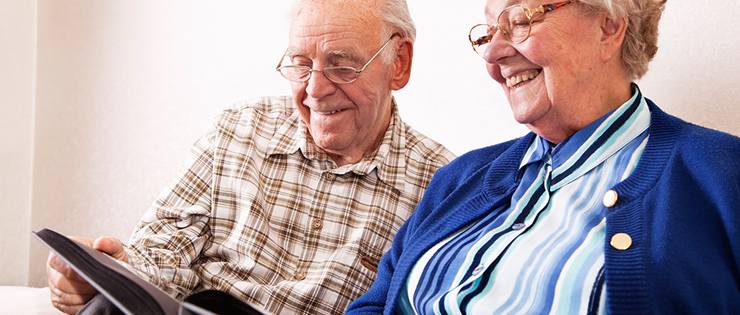
A long term patient of mine came in recently, asking for any thoughts on supporting their husband at home. He's a bit down and certainly showing signs of early dementia. There's nothing specific we can offer him yet, but she was desperate to do everything she could.
Scouring the net she'd come across 'Reminiscence Therapy', and was eager to find out more. Thinking back with great fondness to my medical school days, I struggled to remember what this psychological therapy actually was, so I did a bit of research.
What is Reminiscence Therapy (RT)?
Reminiscence Therapy (RT) is a psychosocial intervention used to help treat a number of problems, especially dementia.
It involves guiding patients through simple reminiscence. Helping them remember in varying detail past events and experiences, activities and adventures, and everything in between. By doing so, it facilitates pleasure, quality of life, and adaptation to present circumstances or hardships. RT is believed to be beneficial for more than just dementia. Depression, anxiety, and loneliness are three common symptoms suffered by the elderly, with RT shown to be useful to treat each.
It can be structured or unstructured. Be done individually or in a groups, with the therapy enhanced with the use of prompts and props. Photographs, household items, music, videos, or old sound recordings all aid the reminiscence process, and therapeutic benefit. Formal therapy in groups usually occurs weekly, but family and care-givers can become increasingly involved, offering opportunistic or adhoc therapy multiple times a week. A lot of aged-care facilities offer RT as part of their weekly programs.
At the same time, participants can learn something from their past problems to shape their present life. The value of reminiscence therapy above and beyond other therapies, is that it may help older people gain their personal value and self-identity by recalling past memories. And as our population continues to age, the number of individuals with dementia increases proportionally, highlighting the need to design therapies that meet the social and emotional needs of people with dementia.
Is RT the answer?
Stimulating happy memories seems like common sense – surely that has to maintain memory and cognitive function? It's definitely gaining popularity as a management tool for dementia, but is there any evidence it works? Well, the good news is, there is evidence that RT works.
Numerous studies show benefits of all forms of RT on improving mood, relieving anxiety, assisting feelings of loneliness, and improving cognitive function. Plus, RT brings a sense of involvement and achievement for family and caregivers, who are able to be more active in their loved ones care. But frustratingly, the evidence is weak. We need to think of it as an adjunct, and extra. It's something that can help improve quality of life in the elderly, but not something that can be relied upon as their only therapy.
If you're interested in exploring RT for a loved one, then chat to your doctor or a trained psychologist. For aged-care facility residents: speak with the nursing and allied health staff on duty.